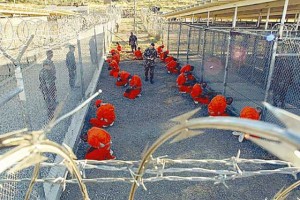In the wake of the 9/11 attacks, the US government had very little intelligence on al Qaeda’s plans and capabilities. There was a tremendous amount of fear that the strikes were only the first of many large-scale attacks to come, and reports even circulated that the group had nuclear weapons planted in US cities. The public as well as government officials were in shock and caught off guard. In hindsight, it is easy to understand how extreme fear of the unknown compelled some elements of the intelligence community to embrace the idea that harsh interrogation measures were required to understand the urgent and nebulous threat the nation was facing.

Military police process incoming Taliban and al Qaeda detainees at Guantanamo Bay’s Camp X-Ray in Cuba in 2002. (Photo by Petty Officer 1st class Shane T. McCoy/US Navy/Getty Images)
Already have an active account? Log in here.
Continue reading with one of these options:
Continue reading with one of these options:
Premium + Digital Edition
Ad-free access
P 80 per month
(billed annually at P 960)
- Unlimited ad-free access to website articles
- Limited offer: Subscribe today and get digital edition access for free (accessible with up to 3 devices)
TRY FREE FOR 14 DAYS
See details
See details
If you have an active account, log in
here
.

